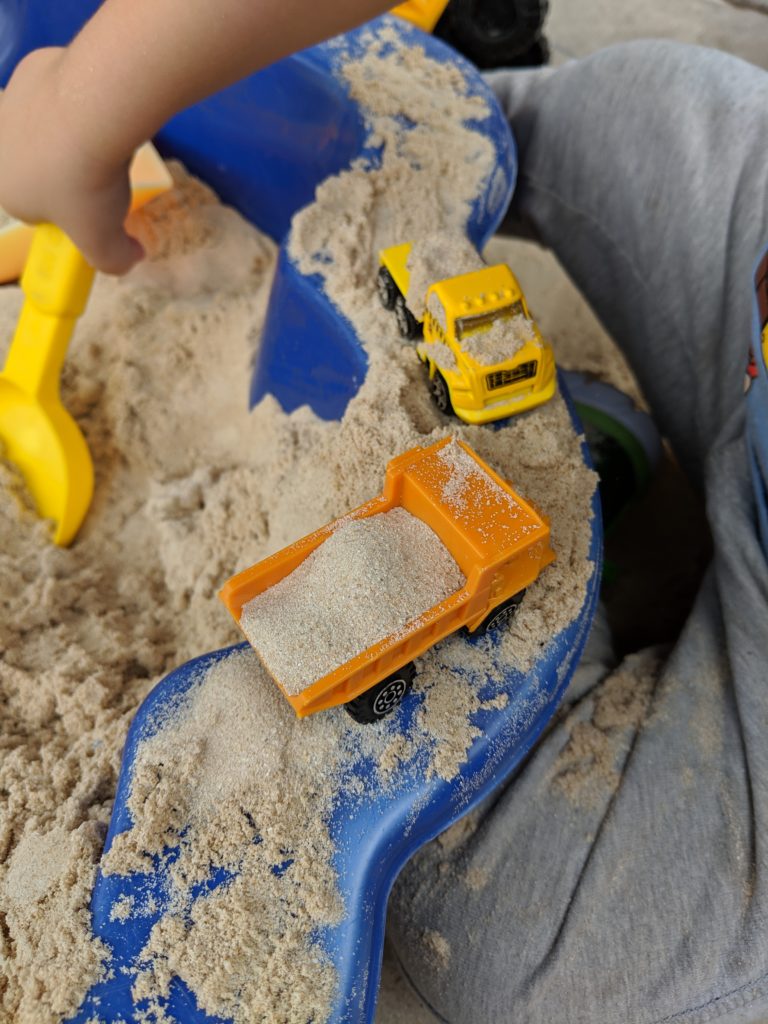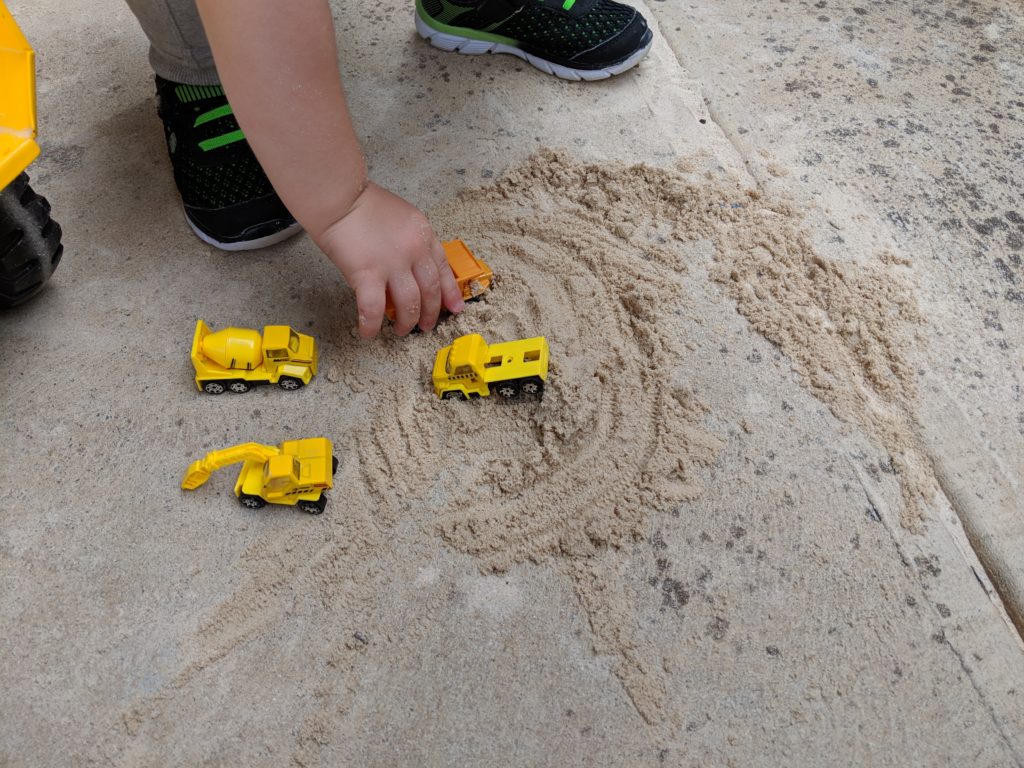I love sand play even though I hate how it feels and no matter how careful I am when engaging with children during this play, it always results in me wearing a thick layer of it. I’m happy to sweep or vacuum it up and as an educator seem to have developed a resilience to mess, my husband on the other hand hates that it finds its way through our house regardless if it can be cleaned up and he especially worries it will clog our drains outside.
E loves to play with trucks in his sandpit and recently decided it was fun to drive his excavator inside and dump bucket loads of sand on the kitchen floor. This caused some frustrated feelings in mum and dad who explicitly directed him to keep his sand outside. He of course was encouraged to use his dustpan and brush and clean the mess up himself.

It made me reflect back on my years as an educator and the countless families who requested their children stay away from the sand as they would bring home collections of sand in their shoes and pockets. As an educator my respectful response was always promoting the rights of the child to explore this amazing learning space, and the inability to restrict their choices for play. Families had mixed feelings to this explanation but felt comforted at my promise to always empty their child’s shoes and pockets, and dust off their clothes before going home.
As an educator and mum I think it is important to respect the wishes and feelings of families, whilst maintaining each child’s right to choose their play. Sometimes families are unaware of the benefits of playing in sand and it is our duty to advocate for learning in sand in a respectful manner.
Playing with sand is a great way to introduce children to mathematical concepts such as size, volume and capacity. Children can test out ideas, investigate cause and effect and practice their problem solving skills as they build, dig and create. Playing socially in the sandpit, children can develop communication and cooperation skills. Children use their imaginations as they create their own play episodes, nurture their confidence and share feelings of pride in what they have been able to accomplish. Children explore the use of all their senses as they see, touch, taste (yes taste!), smell, move and hear in this natural environment.

Messy play will always be a frustration for certain people especially those with sensory sensitivities, however I believe if we respectfully advocate for the learning and developmental opportunities behind these play styles we are able to continue promoting meaningful engagements for children.

